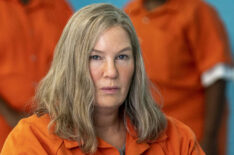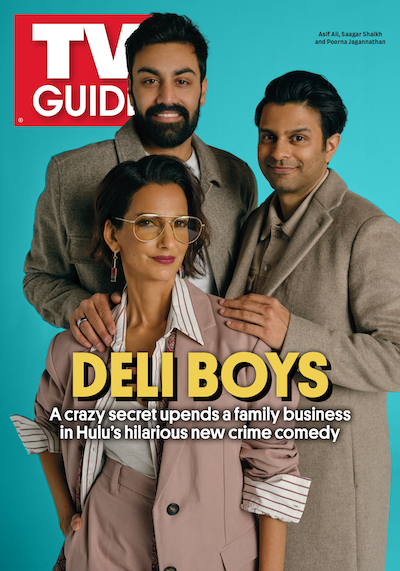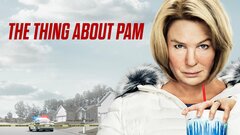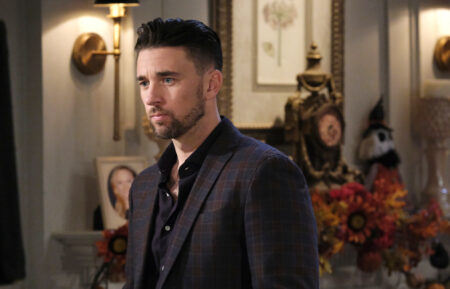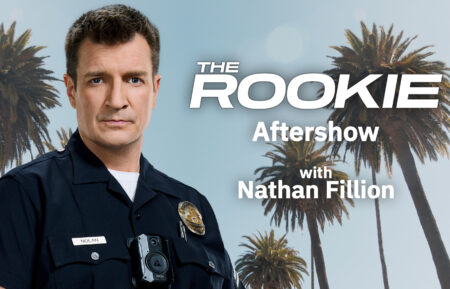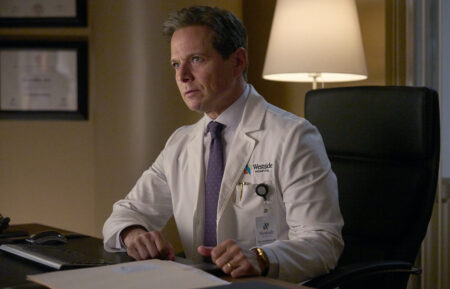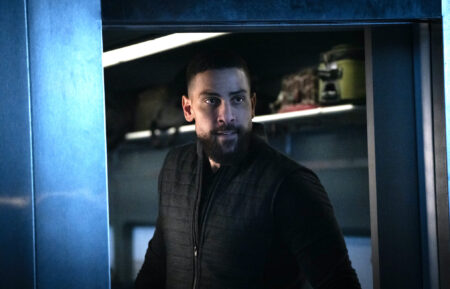‘The Thing About Pam’ Boss on Embracing the ‘Meta Opportunities’ in Final Image of Pam
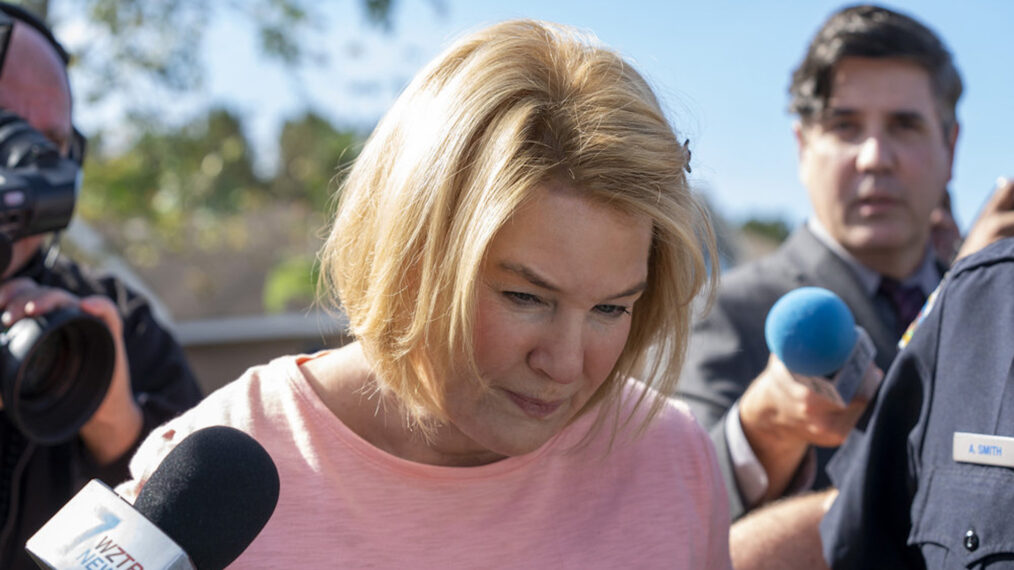
Spoiler Alert
[Warning: The below contains MAJOR spoilers for The Thing About Pam series finale.]
As NBC’s dramatized six-episode limited series The Thing About Pam wraps up, it embraces its meta side.
In the series finale, Pam Hupp (Renée Zellweger) is finally caught out after attempting to stage an attack in her home, only for a detective to take a closer look at the supposed intruder’s death. With her neck bandaged — after she stabbed herself with a pen she snatched from the interrogation room — Pam pleads guilty. However, it’s an Alford plea, meaning she’s acknowledging there’s enough evidence to convict her but not admitting to committing the offenses. Therefore, murder victim Louis Gumpenberger’s family doesn’t see her stand trial.
“We wanted this episode to be filled with dread all the way through every second, but where it’s so incredibly tense that you can’t look away,” showrunner Jenny Klein tells TV Insider of the finale.
The series ends with a montage sharing what happened with everyone, including Betsy’s (Katy Mixon) case being reopened, and Pam, in prison, watching the NBC limited series.
Klein takes us inside making the series.
With something like this, you know where the story is going from the beginning. So talk about deciding which parts you wanted to have in the finale.
Jenny Klein: We wanted to end Episode 5 with a ramp up to the finale where it feels like Pam is becoming unraveled and so many people are on her bad side that it feels like any one of our cast members could be at risk going into the finale, so then it has sort of a clean start for the propulsion of the finale. And we wanted it to feel propulsive right from the beginning with that sort of setup right at the end of Episode 5. The conceit for Episode 6 was really Pam is a shark and we’re going to be with the shark the whole time and it’s going to be tense and tragic, and we wanted to see that through her machinations, through the tragic murder of Louis Gumpenberger. Then of course there’s the Alford plea hearing and how that all wraps up, and because we spent so much time in court earlier in the season, we didn’t want it to fizzle out. We wanted to wrap things up, but also sort of get to the point.
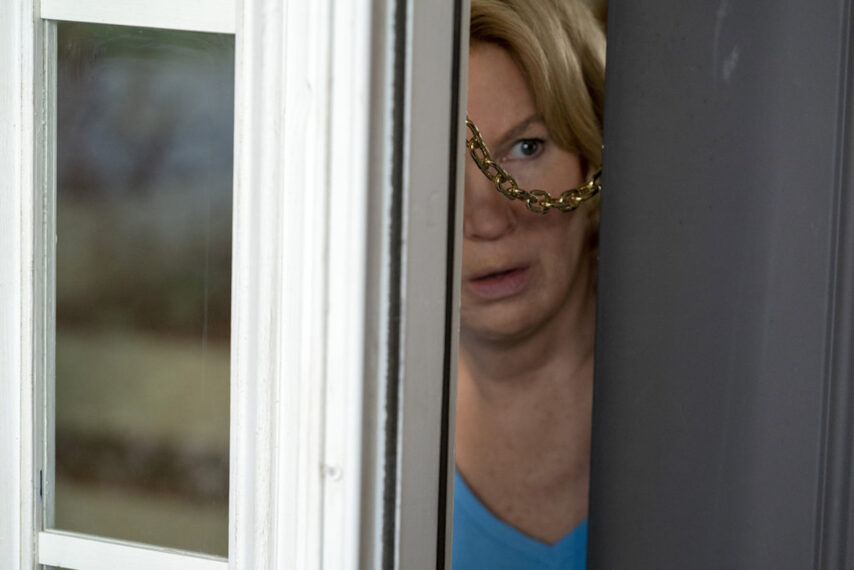
Skip Bolen/NBC
How early on did you know how you wanted to end the series?
That was my first idea coming into the show: “Oh, man, we gotta end with Pam in prison watching the show, watching herself.” I was excited as a writer about the meta opportunities on our series, where there’s a meta layer to our show in that Keith Morrison from Dateline is narrating, and at one point Pam watches herself on Dateline on our show. Of course she impersonated a Dateline producer. So ending with Pam watching our limited series in prison felt like a fitting ending where it’s an allusion to the cyclical nature of the media and its storytelling. It’s something we’re all a part of, especially in the true crime space. So this revolution on NBC may or may not reach Pam, but we wanted to telescope all the way out to the present circle where in true form, Pam Hupp might continue to see herself as the victim all the way to the very end.
Talk about using the real footage over the end credits.
That was something that we really wanted to do to show the real life Pam and hearken back to all these moments in our series where we reflected her costume, her mannerisms. You can really see how transformative Renée was in her physicality, in her carriage, in her cadence and so that when the audience — maybe some people didn’t Google it, they just watched our series — would see these clips, and this was just a few, and be like, “Oh my God, that really happened. She really said her mom is worth half a million when she dies and she’s wearing that yellow shirt,” which our costume designer worked so hard to find the exact clothing to bring these real life details to life on our show.
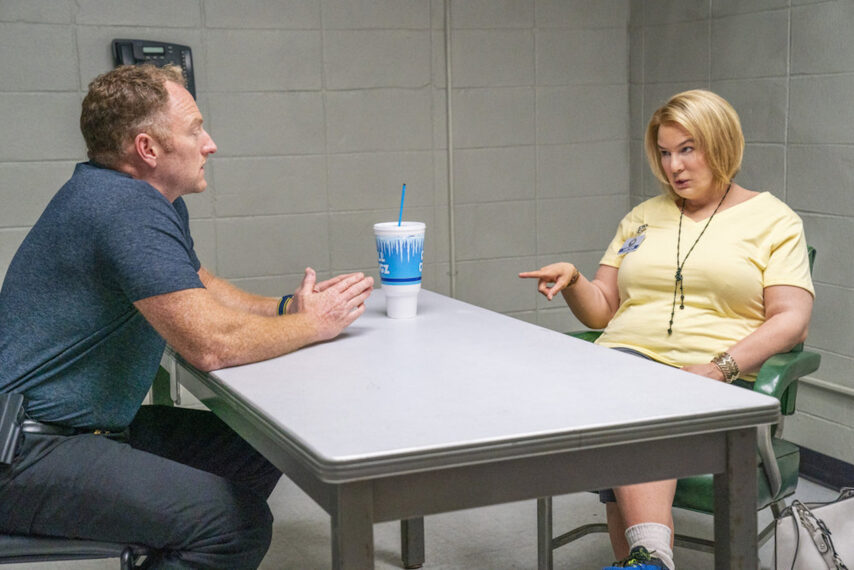
Skip Bolen/NBC
Is there anything you wanted to include in the series that you didn’t or couldn’t?
There was an incredible flashback potential opportunity for Pam’s experience working at State Farm after she and Mark [Sean Bridgers] returned from Florida, and the inner office dynamics were so interesting. We talked to some people who worked with her, and it could have been its own episode, that entire experience of her machinations at that State Farm office.
Talk about finding the right balance, when you’re adding humor to the series, especially when it comes to the finale.
Yeah, the tone, balancing the humor with the tragedy was one of our biggest challenges but also became a very unique part of the show where you have on the one side, this completely tragic story that’s so disturbing and heartbreaking, and then on the other side, you have the absurd details of this true story, which more often than not come from Pam herself. So we wanted, when you’re with Russ [Glenn Fleshler] and when you’re with Betsy and her daughters, especially Mariah Day [Gideon Adlon], who we were privileged to speak with in the research for the show, to really make the audience feel their raw pain and frustration, which makes Pam’s actions all the more upsetting. What we wanted to do in this finale was really amplify this constant sense of dread, as we’re all wondering, what will Pam do next?
And in this finale, we have our ultimate Pam vision — Pam visions are what we call them in the writers room, which are these cutaways and they’re not reality and they represent the exaggerated way that Pam tells stories. They’re jagged and abrupt and absurd and contradictory, and they’ve been building over the season becoming more and more theatrical as her lies have become more and more over the top and simply visualizing her inconsistencies would make anyone laugh, I think, by the nature of their, as Pam would say, ridiculousness. So in our finale, it was our most over the top Pam vision, as this Pam vision is the ultimate cinematic portrayal of a liar. And what she told the detective was physically impossible, both in the actual timing, the physical elements of time and space, and because of the physical limitations of the real-life Louis Gumpenberger. So that was our visualization of Pam’s exaggerated impossible storytelling.
Was there anything specifically that surprised you about the series looking back on it as a whole? I know you did a lot of research for this.
Yes, we did. We had an intense research phase, before we even put pen to paper, and had this treasure trove of data, of public record and everything from NBC News, Dateline’s reporting. It wasn’t a surprise, but I thought it was incredible: In Episode 4, when Pam is explaining to Leah Askey [Judy Greer] and McCarrick [Mac Brandt] how she and Betsy were, it turns out, secret lovers. Our cinematographer, John Brawley, and our A camera, Jess Clarke-Nash, had this idea to do this sort of revolving camera as Pam is telling this story that and builds with each revolution and Judy Greer and Mac Brandt, their reactions for me became the highlight of the scene. Renée’s performance was amazing, but just seeing that story land on these unbelievably talented actors’ faces was something you can’t anticipate, but became one of my favorite sequences of the entire series.
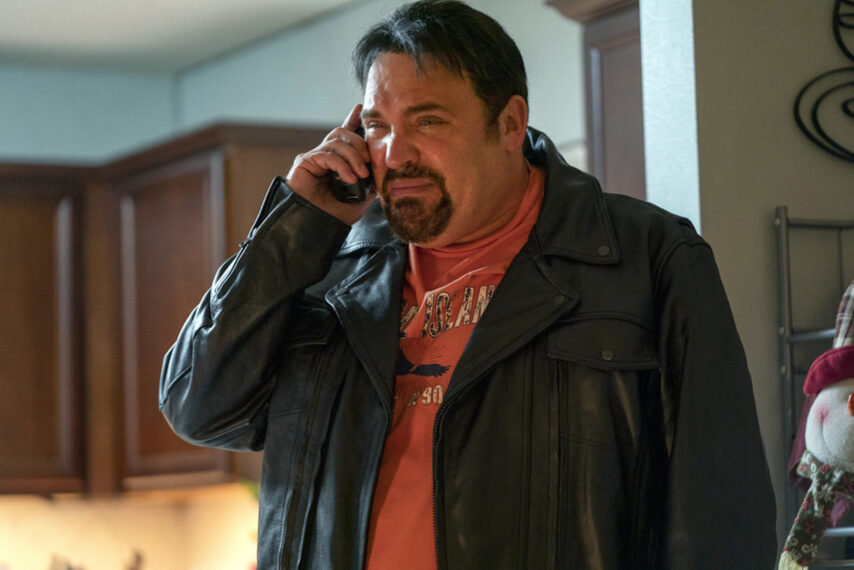
Skip Bolen/NBC
The entire cast was so good.
Yes, they were so good. And Glenn Fleshler, I was just wrecked by his performance. Watching him perform the 9-1-1 call in the pilot, I was in the village in tears, and it was bringing you back to interviewing the real Russ Faria and feeling in his shoes and just reminding us that this is a worthwhile story about the horrors of confirmation bias leading to wrongful prosecution. And I feel like Glenn really put his heart out there and grounded the performance and the real person.
And the finale in the police station when he finds out he’s clear and can leave…
Yes! Oh, the relief. Just because you’ve seen Pam win over and over, that moment because of the way you’ve seen justice enacted on our show, based on true events, there should be a sliver of doubt and some real worry there that Russ could get screwed over again. And so then when it doesn’t, it’s just this huge sigh of relief.
From TV Guide Magazine
Crime, Comedy & Convenience Stores: Unwrapping Hulu's 'Deli Boys' With the Cast
Cupcakes, corndogs…and cocaine?! Two brothers find themselves in a hilarious pickle when they inherit an unseemly bodega biz in Hulu’s new comedy Deli Boys. Find out how The Sopranos and Real Housewives of Orange County influenced the cast. Read the story now on TV Insider.

